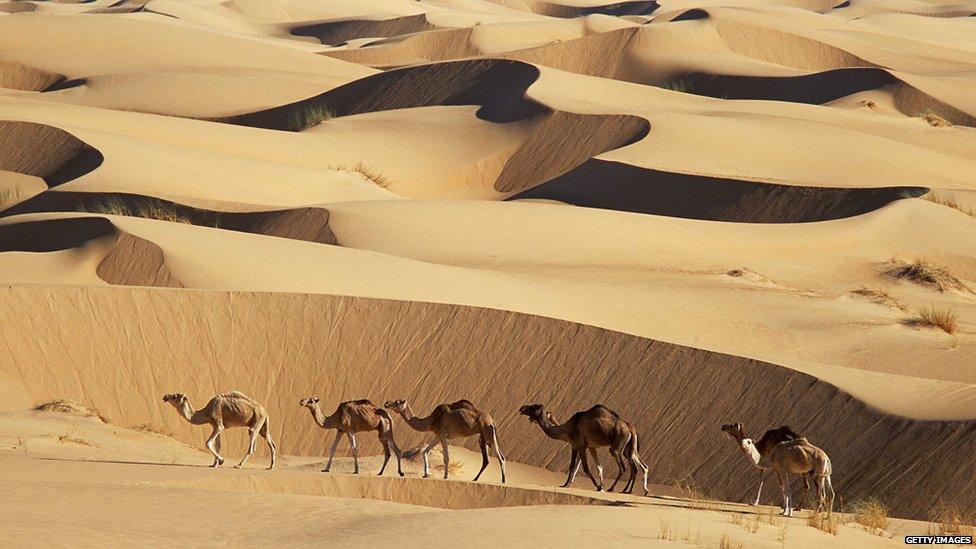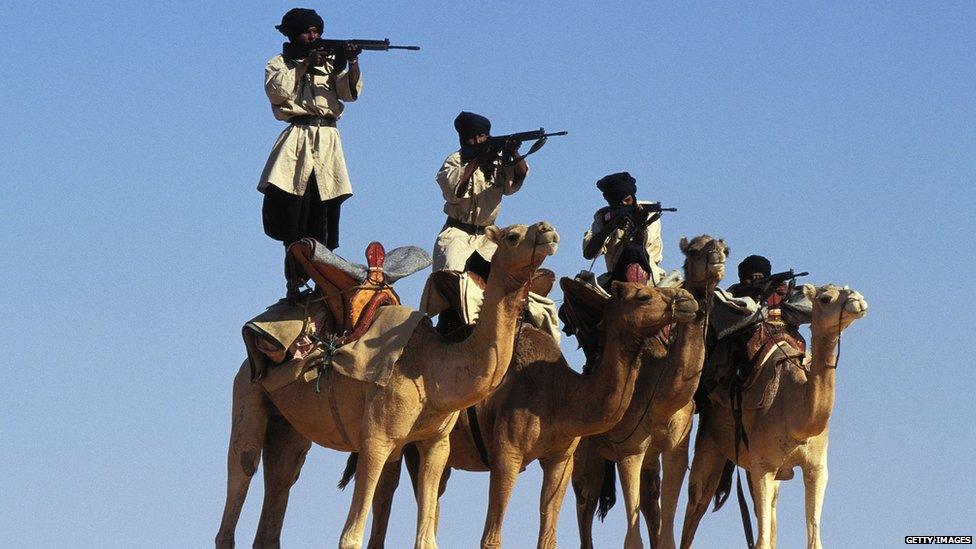Camels gift from EU bewilders Mauritanians
- Published

Local experts estimate there are 3 million camels in the country of 4 million people
The EU has given Mauritania 250 camels, external as part of its efforts to combat the threat of jihadists and boost border security in the Sahel country, according to the Sahara Media news agency.
The arrival of the animals in the town of Achemim in an eastern region bordering Mali was met with amusement by local people, who thought the gift was surprising given that their country is known for having a large camel population.
The animals are destined to be deployed in Mauritania's military camel cavalry units to help survey remote border areas that are particularly vulnerable to jihadists.
The army chief, Lieutenant General Masgaro Ould Sidi, said the new additions will provide a boost to the units , externalwhich play an important role in guarding the country's borders.
'The EU has camels?'
A Facebook post by the Al-Akhbar news agency generated hundreds of comments and laugh emojis, external. One user wondered where the camels came from: "They came as a gift from Europe, but they were always here?"
Another posted in mock disbelief: "The EU has camels too?"
You may also be interested in:
Others questioned the importance of camel cavalry units in modern times and suggested that a high-tech gift would be more beneficial, like vehicles for desert navigation or advanced systems for surveillance and communications.
"Why can't they give us weapons or military equipment of value?" one person asked.
In support of this argument, some pointed out that Morocco recently got radars, in a reference to the aid the country received from the EU and Spain to fight illegal immigration.
Others denounced the gift as an insult and mockery of the Mauritanian people.
Camel-back mission
The camels were donated as part of a 13 million euros (14.7m dollars) of aid, external from the EU to boost Mauritania's development and security at the same time.
The two-pronged approach underpins the EU's strategy for the Sahel region, external which is now at the forefront of the global war on terror.

The Mehariste cavalry units were established in 1912, shortly after the start of French colonial rule
The Mauritanian military's Nomad Group, which includes camel-back units, is an example of the approach that fuses security operations with infrastructure development.
The units can be deployed for surveillance and intelligence gathering as well as on sanitation and education projects, for example.
"The basic idea is to improve the security and living conditions , externalof the population in order to keep it on the ground, loyal to the state and willing to provide information about suspicious movements," said Francois-Xavier Pons, the EU project's head of mission.
Mauritania has, along with other Sahel countries, been heavily hit by jihadist attacks in recent years. The country shares a 2,000km-long border with Mali and it is the remote border areas that are of particular concern to the authorities, as diminishing state control there has given way to an increased jihadist threat.
The camel-back units have existed for over a century, but they have only recently been deployed to remote border areas, according to local media. The military has pointed to their advantage compared to other border patrol - their ability to move fast in the desert wilderness.
Reporting by Vera Le Quesne-Papic and Krassi Twigg
Next story: Russia calls up huskies for military duty
Use #NewsfromElsewhere to stay up-to-date with our reports via Twitter, external.